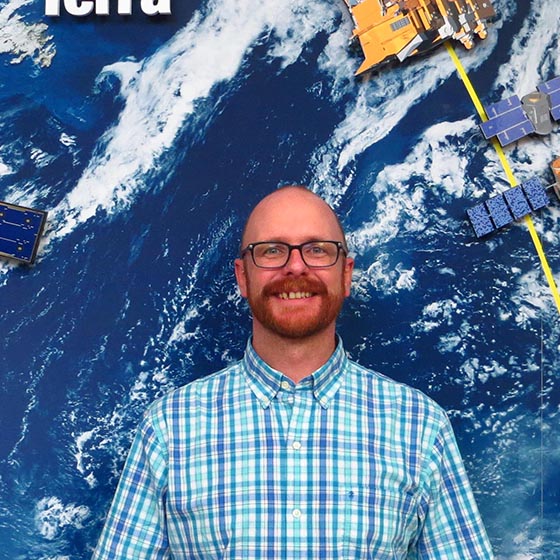Student Works with NASA this Summer

Graduate student Jared Tomlin is working with NASA's DEVELOP program this summer.
Jared Tomlin
Program
- Environmental Biology (M.S.)
Department
- Biology
Jared Tomlin, C’16, a Masters of Science in environmental biology candidate, is working with NASA this summer on a project focused on ecological forecasting.
Tomlin is conducting work as a participant in the NASA DEVELOP Program, which is a part of NASA’s Applied Sciences Program and operates at 13 locations throughout the nation. Tomlin’s project team is working at NASA Goddard Space and Flight Center in Greenbelt, Md., and partnering with the National Park Service and the U.S. Geological Survey to monitor and forecast the abundance and distribution of invasive brome grasses in the Northern Plateau.
The brome grasses impair the area’s native grasslands and contribute to a decrease in native species diversity. Understanding the behavior of the invasive species through space and time is key in developing successful management efforts.
“The program functions to give partner organizations, such as the National Park Service, the ability to better understand complex, landscape level environmental questions for decision making by utilizing the constellation of Earth observing NASA satellites, tools and operational support,” he said.
In addition to the years of field data collected by scientists in the area, the job requires the use of Landsat and Terra satellites, both part of NASA’s Earth observations fleet.
Tomlin earned a certificate in geographic information systems from Hood College in May, making him well equipped for the position. The selection process for participants in the DEVELOP program is considered highly competitive.
“Attending the Hood job fair with a résumé in hand to talk to the DEVELOP representative gave me a start, and my adviser was key in helping navigate the process,” he said. “A strong GPA with a background in GIS and Earth sciences, as well as technical ability in programming and design, were key in my acceptance.”
Tomlin learned about many different GIS and remote sensing solutions throughout his GIS course work, and he maintained a focus on environmental biology and climate change.
“The education I received at Hood College was paramount,” he said.
Before pursuing graduate studies at Hood, Tomlin attended Shepherdstown University in West Virginia, where he earned a bachelor’s degree in environmental science and sustainability. He plans to continue his education to earn a doctorate and go on to work at NASA or a similar organization.
Are you ready to say Hello?
Choose a Pathway
Information will vary based on program level. Select a path to find the information you're looking for!
